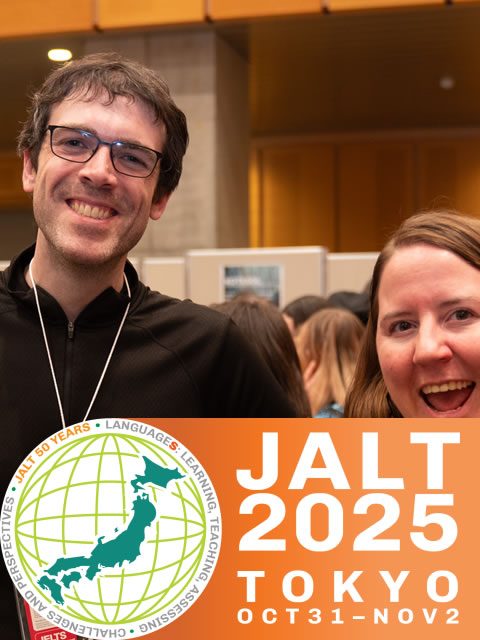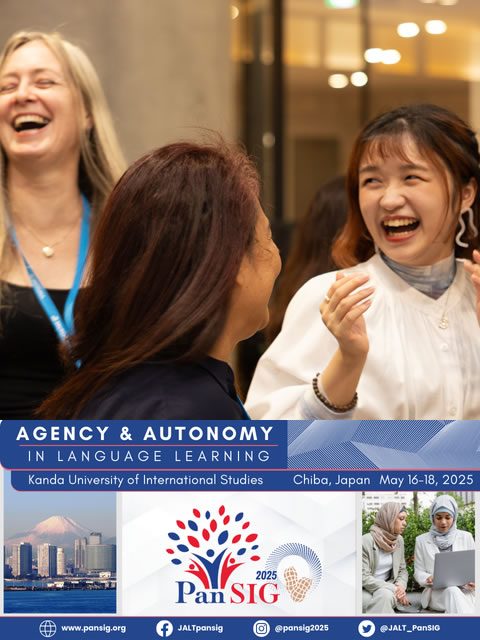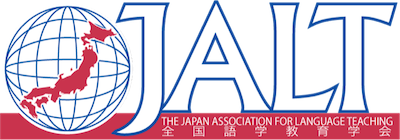Your cart is currently empty!
JALT2019 Featured Speaker Information
•
Phil Chappell
Ken Beatty
Evelina Galaczi
Timothy Mossman
Ron Morrain
Janice Bland
Marc Helgesen
Fiona Creaser
Phil Chappell
Sponsored by Macquarie University
Discussion and Inquiry Dialogue for the Classroom
Sunday, Nov 3, 11:45 AM – 12:45 PM, Rm 902
Research repeatedly shows that meaningful discussion and inquiry promote classroom language learning. However, they remain an elusive aspect of many language classrooms. In this workshop, we will examine transcripts to identify what these forms of talk are, how they are structured, and what linguistic features they exhibit. We will discuss and inquire into how both forms of talk can be embedded into lessons in ways that maximise student engagement and language learning.
Additional Presentation: Researching Classroom Talk: Toward Inquiry Dialogue
Saturday, Nov 2, 4:25 PM – 4:50 PM, Rm 1103
In this presentation, I use a narrative approach to describe how my research program into classroom talk over the past fifteen years has helped develop understandings of a range of types of classroom talk. Each type serves a different pedagogic purpose. I argue that teachers need to be aware of these types of talk and ensure they achieve a balance in their lessons to support student engagement and promote meaningful activity in the language classroom.
Phil Chappell is a Senior Lecturer in Applied Linguistics and TESOL at Macquarie University, and also Deputy Head of the Department of Linguistics. He conducts research in a variety of areas of ELT, teaches on the Graduate Certificate of TESOL and Master of Applied Linguistics and TESOL programs, and supervises TESOL research students. Phil has taught and managed overseas and in Australia in a range of English language programs.
Ken Beatty
Sponsored by Pearson Japan K.K.
A New Path: Technology, Efficacy, and Agency
Saturday, Nov 2, 3:15 PM – 4:15 PM, Rm 901
Technology, in the form of mobile language learning, helps meet new demands on the roles of teachers and students. Teacher efficacy–the confidence to adapt and innovate in the classroom–recognizes that every student deserves to succeed. Part of this means increased student agency: giving students more responsibility and more personalized choices in their language learning. This workshop offers practical advice on mobile language learning opportunities with a feedback-driven learning cycle to create dynamic classrooms.
Additional Presentation: Flipped Learning: Creating Flexible Classrooms
Sunday, Nov 3, 11:45 AM – 12:10 PM, Rm 903
As language classrooms increasingly feature mixed ability students, reasons for flipped learning increase. In flipped learning, students engage with direct instruction on their own time, and in-class time is used for learner-centered active learning, with teachers and classmates providing feedback and support. Teachers sometimes resist flipped learning over concerns of losing control and a lack of student responsibility. This workshop explains how teachers and students can begin with small steps to integrate flipped learning effectively.
Ken Beatty, Anaheim University TESOL Professor, has worked in secondary schools and universities in Asia, the Middle East, and North and South America, lecturing on language teaching and computer-assisted language learning from the primary through university levels. He is author of Teaching and Researching Computer-Assisted Language Learning and more than 100 student textbooks, and has given 400+ teacher-training sessions and 100+ conference presentations in 31 countries.
Evelina Galaczi
Sponsored by IELTS
Developing Interactional Skills: What, How, Why?
Saturday, Nov 2, 4:25 PM – 5:25 PM, Rm 902
Interactional skills are a prerequisite to second language acquisition. They are ‘the matrix in which acquisition takes place’ (Ellis, 2005:219). But what does developing interactional skills actually mean for the language classroom? Clearly just creating opportunities for speaking practice is not enough. This workshop will give teachers an understanding of key interactional micro-skills, how to assess these skills, and how to provide meaningful feedback on students’ interactional performance to support their language development.
Additional Presentation: Is Technology a Teacher’s Friend or Foe?
Sunday, Nov 3, 12:55 PM – 1:20 PM, Rm 1103
In this presentation, I will explore the role of technology in English language learning and teaching. Is the impact of technology expansive and positive or reductive and negative? I believe the only way to answer this question, objectively, is by looking at what teachers can do better than technology, what technology can do better than teachers and what they both can do well, albeit in different ways.
Evelina Galaczi is Head of Research Strategy at Cambridge Assessment English. She has worked in language education for over 25 years as a teacher, teacher trainer, materials writer, researcher and assessment specialist. Her areas of interest/expertise are in speaking assessment, the integration of digital technologies with assessment and learning, and helping teachers to be successful practitioners in the age of digital learning. Evelina holds a Master’s and Doctorate degrees in Applied Linguistics from Columbia University, USA.
Timothy Mossman
Sponsored by Simon Fraser University – Student Learning Commons (Library)
Transforming Practices through EAL Peer Education
Sunday, Nov 3, 12:55 PM – 1:55 PM, Rm 902
Experience the productive and critical training English as an Additional Language (EAL) Peer Educators receive through the Student Learning Commons at Simon Fraser University. Participants will embark on the application process, attend core and EAL specific training, and have their first English conversation meetings with their clients. Participants will also role-play a Conversation Partner session and then share their impressions and motivations for applying to the program.
Additional Presentation: English Ownership: Power, Legitimacy, and Agency
Saturday, Nov 2, 5:00 PM – 5:25 PM, Rm 1103
Who owns English? Who do we perceive as having access to the capital English has, and why? As a way to disrupt beliefs about the “idealized native speaker”, attendees will engage in a critical discussion regarding challenges in the field of EAL services, especially those related to words and naming practices—which carry culture and power—and how our choice of words can perpetuate inequities (albeit sometimes unintentionally) by reinforcing binaries of privilege/marginalization.
Tim Mossman is an educator, qualitative researcher, and English as an Additional Language (EAL) specialist. His professional interests include studying the identities of multilingual immigrant youth in Canada through ethnographic and discourse analytic methods. In his role as the EAL Services Coordinator at Simon Fraser University, Tim contributes to and participates in individual consultations with students, developing and presenting workshops, and mentoring graduate students and student peers, all with a focus on supporting EAL students.
Ron Morrain
Sponsored by JALT Sendai Chapter/ Business Communication SIG
21st Century Skills Training Using Mind Maps
Saturday, Nov 2, 12:45 PM – 1:45 PM, Rm 901
Getting learners to develop 21 st century skills, while learning English (EFL and ELF), can be difficult for even the most seasoned teacher – and is a huge challenge for new teachers. Additionally, getting learners to get involved in their own learning is an even bigger challenge for any teacher. How can teachers overcome the helplessness and stress that many L2 learners encounter when faced with longer more complicated content-based learning cycles?
Additional Presentation: 12 Reasons to Use Mind Maps for TBL + PBL
Sunday, Nov 3, 5:45 PM – 6:10 PM, Rm 1103
Is there an effective method or approach to apply within a L2 learning cycle that can guide learners to develop their present skills, learn new skills, and supports learner agency – while learning English? The answer is simply – Yes.
Ron Morrain currently lives and works in Germany where he is co-founder and Director of Studies at the Language Learning Centers Europe. He is the innovator of the concept Ready-made Mind Maps, which facilitate task-based learning (TBL), project-based learning (PBL), content and language integrated learning (CLIL), and content-based instruction (CBI) for L2 and L1 learners. As a regular speaker at conferences, Ron has conducted workshops, talks, and webinars internationally promoting the idea of TBL, PBL, and Mind Mapping in Second Language Learning and Teaching. During his academic career, he has held positions at a number of universities in Germany. He has also worked with many Fortune 500 and DAX companies as a consultant or coach.
Janice Bland
Sponsored by JALT Literature in Language Teaching SIG
Spinning a Story – Weaving Grammar and Lexis
Sunday, Nov 3, 4:35 PM – 5:35 PM, Rm 902
Using a picturebook suitable for secondary-school students (Scieszka and Smith’s The True Story of the 3 Little Pigs!), this workshop will illustrate how grammar and lexis are closely intertwined and not distinct from one another. It will be demonstrated how story imparts agency to the students – to confidently use and enjoy idiomatic language in ELT. While the power of story enhances student engagement, teachers gain in confidence in supporting the students in their discovery process.
Additional Presentation: Language and Literature Learning with Picturebooks
Saturday, Nov 2, 11:00 AM – 11:25 AM, Rm 1103
Contemporary and innovative creators of literature on serious themes are increasingly turning to visual narratives, and picturebooks on globally relevant topics can make a considerable depth of understanding achievable, also for young learners. This presentation will feature a selection of picturebooks from around the world that centre on global issues. We will discuss how teachers can make use of the visuals to support students in their language and literature learning, as well as intercultural competence.
Janice Bland is Professor of English Education, Nord University, Norway. Her interests include teacher education in the field of English language education, creative writing, children’s literature, critical literacy and global issues, intercultural learning and drama. Her publications include Children’s Literature and Learner Empowerment (2013), Teaching English to Young Learners (2015) and Using Literature in English Language Education: Challenging Reading for 8–18 Year Olds (2018), all Bloomsbury Academic. Janice edits the open access journal Children’s Literature in English Language Education (CLELEjournal).
Marc Helgesen
Sponsored by Abax
This is Your Brain on Happiness: A Chemical Story
Saturday, Nov 2, 5:35 PM – 6:35 PM, Rm 902
What’s happening in our students’ brains when they are happy? How does that mix of dopamine, serotonin, oxytocin, endorphin, BDNF and other neurotransmitters and hormones work? More importantly, how can we organize our classes so we trigger them (teacher efficacy) and teach our learners how to make use of them on their own (student agency). Remembering Larsen-Freeman’s reminder that “everything is connected to everything else,” we’ll explore classroom applications. Handout provided.
Additional Presentation: ELT & the Science of Happiness – A Resource Book
Sunday, Nov 3, 1:30 PM – 1:55 PM, Rm 1103
Happy students learn more, work longer on tasks, and display more grit. This activity-packed session introduces the new book “English Language Teaching and the Science of Happiness.” The book presents over 75 classroom-tested positive psychology communication activities. Each is based on real, evidence-backed science and has identified language and psychology purposes. The tasks are photocopy-ready. Most have copy-free variations. And since happy students are also more fun to teach, that leads to happy teachers.
Marc Helgesen is author of English Teaching and the Science of Happiness: Positive Psychology Communicative Activities for Language Learning (Abax) and is an author of 180 ELT articles, books and textbooks including the popular English Firsthand series (Pearson). He’s been an invited or featured speaker at conferences on five continents. Marc is professor at Miyagi Gakuin Women’s University, Sendai and teaches Positive Psychology in ELT in the Nagoya University of Foreign Studies MA TESOL program.
Fiona Creaser
Sponsored by JALT Gender Awareness in Language Education SIG
Promoting Harassment Awareness in the Classroom
Sunday, Nov 3, 3:25 PM – 4:25 PM, Rm 902
This workshop will show participants practical ways in which they can promote awareness of harassment prevention in the classroom, either as a topic central to the theme of the class, or as a segment of the class incorporated into the main topic being taught. There will also be plenty of opportunity for discussion about different types of harassment and what to do in the event an incident of harassment occurs.
Additional Presentation: Teaching Gender: Why? How? When?
Saturday, Nov 2, 11:35 AM – 12:00 PM, Rm 1103
This presentation will look at ways in which teaching about gender can be incorporated into the classroom. It will discuss why teaching about gender is important and how to teach it. I will concentrate on inclusion, diversity, and equity and will use examples from the following topics; ability/disability, LGBT+ community, and race/ethnicity. The aim of the presentation is to provide thought-provoking ideas that can peak students interest concerning the gendered world around them.
Fiona Creaser is a Professor at the University of Kitakyushu. Her main field of research is sexual harassment, power harassment, and mobbing. She is currently involved in a research project about off campus sexual harassment, sexual and physical assault. She is also passionate about women’s personal and workplace development and is a licensed trainer to deliver Springboard Women’s Work and Personal Development Programme in Japan.

JALT2025 International Conference
2025年10月31日(金)〜2025年11月02日(日) 東京都渋谷 国立オリンピック記念青少年総合センター Friday, October 31 – Sunday, November 02, 2025 • National Olympics Youth Memorial Center, Tokyo, Japan

PanSIG Conference
PanSIG 2025 will be held May 16-18 in Chiba. PanSIG is an annual conference organized by JALT’s Special Interest Groups (SIGs).
